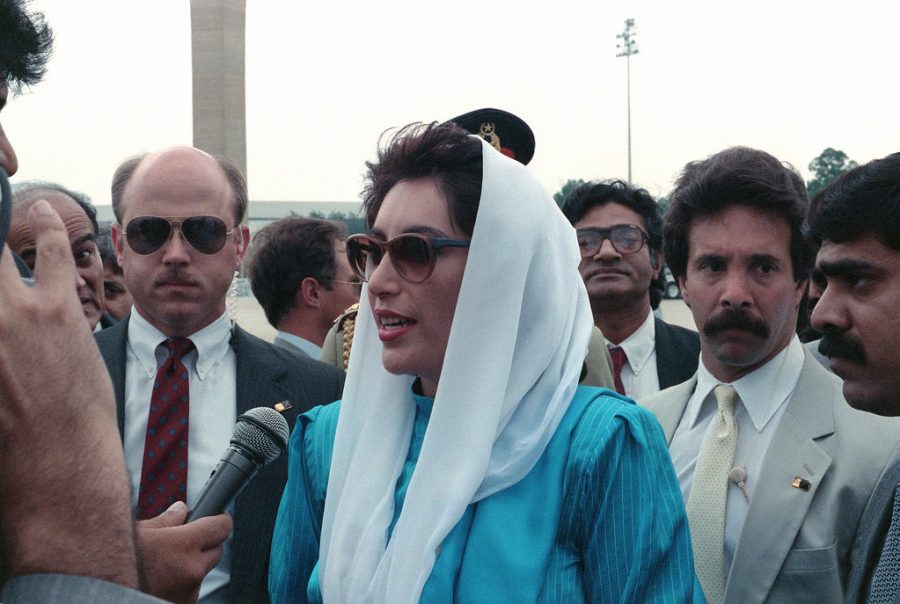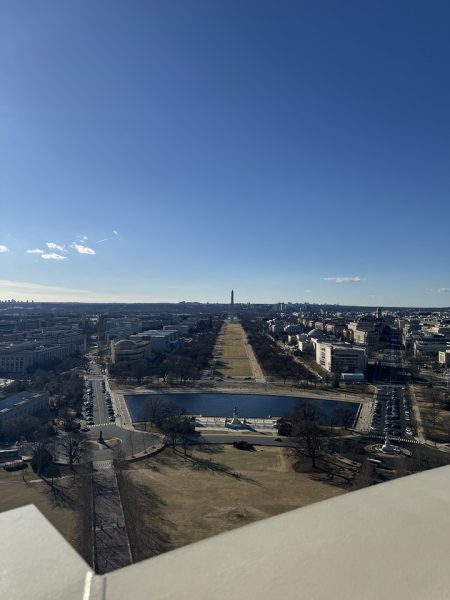Women who paved the way: Benazir Bhutto
Courtesy of pingnews.com on Creative Commons
Benazir Bhutto was the first woman to lead a muslim-majority democratic country. She served as the Prime Minister of Pakistan for five years.
In light of Women’s History Month, The Hawks’ Herald is featuring important women from throughout history. The second week of March highlights women who have paved the way in politics.
Benazir Bhutto was born on June 21, 1953, in Karachi, SE Pakistan. Her father, Zulfikar Ali Bhutto, was the founder of the Pakistan People’s Party (PPP) and served as prime minister from 1970 to 1977. From 1969 to 1973, Bhutto attended college in the United States at Radcliffe College and Harvard University where she obtained a degree in comparative politics.
After receiving her degree, Bhutto went to Oxford University from 1973 to 1977 where she studied international law and diplomacy. When she returned to Pakistan, her father’s government had been overthrown in a military coup and she was placed under arrest.
A year later, the new president Mohammad Zia ul-Haq hanged Zulfikar Ali Bhutto. After his death, Benazir Bhutto took over her father’s role as leader of the PPP. In 1984, she moved to England where she jointly led the PPP while in exile before returning home to Pakistan in 1986. In that year, she launched a nationwide campaign for open elections.
The dictatorship in Pakistan had finally ended after Mohammad Zia ul-Haq died in a plane crash in 1988. Benazir Bhutto was then elected as prime minister, three months after giving birth to her first child, becoming the first woman to lead a Muslim-majority nation. In 1990, she lost the election and had charges brought against her of misconduct while in office.
Bhutto later won back the position of prime minister in 1993. She was forced out of office in 1996 and went into exile, living in both Britain and Dubai. She was convicted in 1999 for corruption and sentenced to three years. As she remained in exile, she continued to lead the PPP. On Oct. 18, 2007, she was able to return to Pakistan after being granted amnesty for the corruption charges.
When she returned, she was given a homecoming rally to celebrate her return. Her homecoming was met with a suicide attack that sadly killed 136 people. Bhutto survived the attack but was placed under house arrest on Nov. 9.
On Dec. 27, 2007, Benazir Bhutto passed away after assassination shots caused her to hit her head. The shots were followed by a suicide attack which killed 28 people and injured more than a hundred. Bhutto had been speaking at a rally filled with thousands of supporters.
Benazir Bhutto was the first female head of state in a Muslim majority country; she had been outspoken most of her life and it ultimately led to her death. Since Bhutto took office as the prime minister for the first time, several women have followed in her footsteps and taken the head of state position.
Emily Dvareckas graduated from RWU in 2022 with a degree in forensic science. She spent three years with The Hawks’ Herald as the photo editor...






